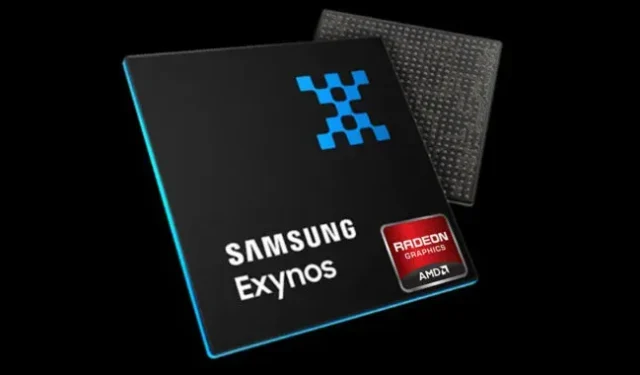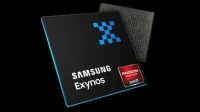Samsung Electronics and AMD are renewing their agreement on the release of chips for smartphones. In today’s press release, the two companies said they have “signed a multi-year extension to the agreement to add multiple generations of ultra-low power AMD Radeon high performance graphics solutions to the expanded Samsung Exynos SoC portfolio.”Even Samsung is reluctant to use Samsung chips these days, so it’s unclear what devices these AMD GPUs will actually appear in.
The chip division of Samsung and AMD have already released a generation of Exynos SoCs with an AMD GPU. That chip was an Exynos 2200 with a Samsung Xclipse 920 GPU that was jointly developed by AMD. The phone division of Samsung, which is not necessarily biased towards the products of the chip division, shipped this chip in the S22 to some regions such as Europe, while the S22 with Qualcomm chips shipped to other regions such as the US and China. Exynos chips get a bad rap for consistently underperforming compared to Qualcomm chips, and the Exynos 2200 is no exception. The chip didn’t perform well compared to the Snapdragon 8 Gen 1 in benchmarks and power consumption, and once again Samsung fans had to deal with “poor quality phones.
The Xclipse GPU’s only victory over Qualcomm was ray tracing. In today’s four-paragraph press release, Samsung and AMD double note that “Xclipse was the industry’s first mobile GPU with hardware-accelerated ray tracing.”Samsung’s 2022 chip is actually better at ray tracingthan the 2023 Qualcomm chip! The problem is that the early adoption of ray tracing is not very relevant for mobile games. Mobile games are designed for casual audiences and aimed at mass market hardware. Due to the need to also balance battery life, this market doesn’t really appreciate high graphics fidelity. As you can see, when Lenovo is killing off its line of gaming smartphones, attempts to bring hardcore gaming values to smartphones haven’t found a huge audience.
Samsung’s Chip Division labels these Exynos chips according to phones from Samsung’s Phone Division, but the two groups disagree on the market viability of the chip. While only a portion of the Galaxy S22 came with Exynos 2200 chips, the Galaxy S23 skipped the Exynos 2300 entirely and moved entirely to Qualcomm in all regions. Rumor has it that the Exynos 2300 still exists and could debut in some special “fan versions”of Samsung products that always look like they’ve been assembled from spare parts. Exynos and AMD are clinging to smartphone relevance, and it’s unclear if this partnership will actually have customers.
The phrase about incorporating Radeon graphics into “Samsung’s expanded Exynos SoC portfolio”could earn both companies some design wins. Samsung’s phone division is still supplying Exynos chips to mid-range and low-end devices, so perhaps this is where we’ll see Radeon technology actually hit the market. It doesn’t make much sense to port high-end desktop features to mid-range mobile phones, but both companies are probably desperate for some market share.


